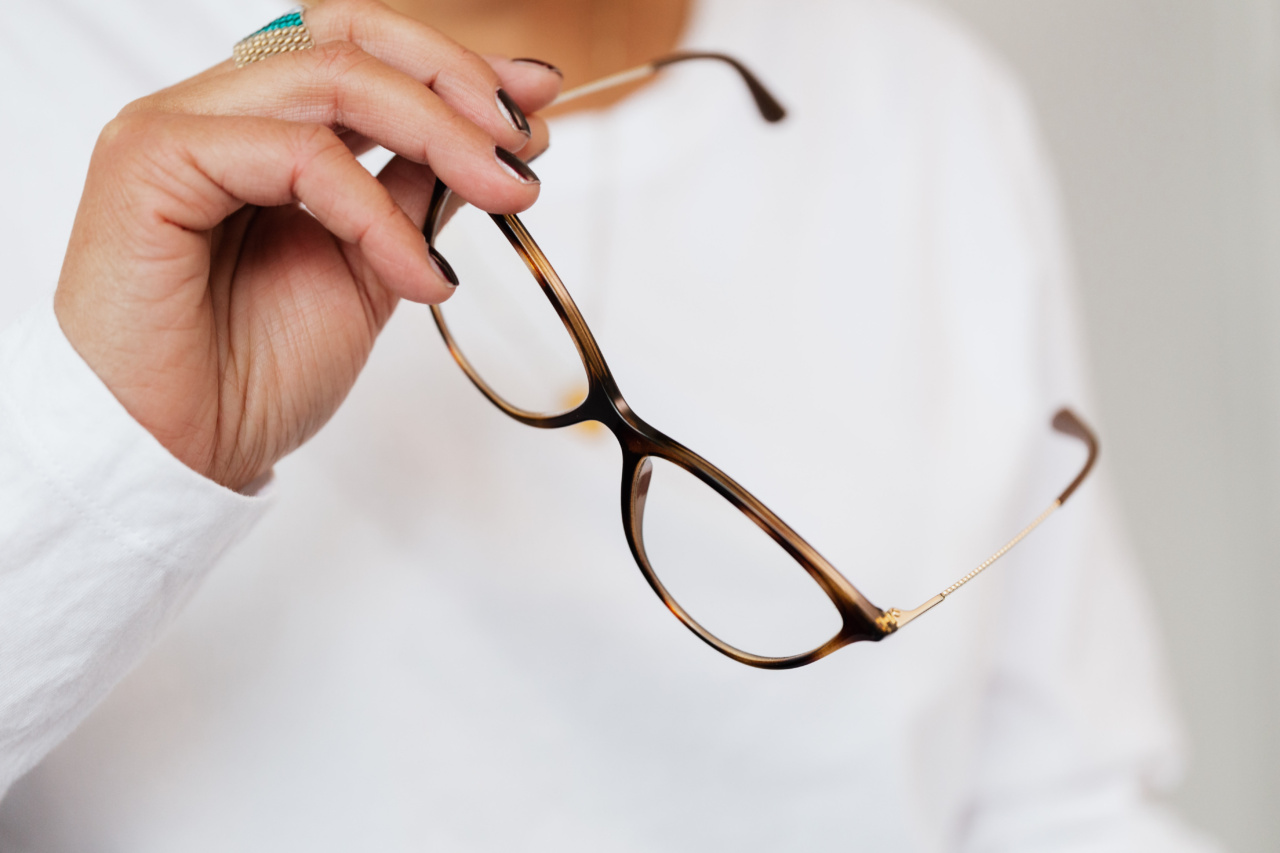Eyes are one of the most essential senses we possess, allowing us to navigate and experience the world around us. Taking care of our eyes should be a top priority, as poor eye health can lead to various vision problems and even vision loss.
In this article, we will provide you with valuable tips to help you maintain good eye health and ensure optimal vision clarity.
1. Schedule Regular Eye Exams
Regular eye exams are vital for maintaining good eye health. Even if your vision seems fine, it’s essential to schedule comprehensive eye exams with an optometrist or ophthalmologist.
These professionals can detect any underlying eye conditions or diseases that may not have noticeable symptoms. Early detection can lead to timely treatment, preventing potential vision problems.
2. Protect Your Eyes from Harmful UV Rays
UV rays from the sun can be detrimental to your eyes. Long-term exposure to these rays without protection can lead to cataracts, macular degeneration, and even cancer of the eyelids. To shield your eyes from UV rays:.
- Wear sunglasses that block at least 99% of UVA and UVB rays
- Choose wraparound styles to prevent sun rays from entering from the sides
- Wear a wide-brimmed hat for additional sun protection
3. Give Your Eyes a Break from Digital Devices
In today’s digital age, many of us spend prolonged hours staring at screens. This can lead to digital eyestrain, also known as computer vision syndrome. To alleviate this strain:.
- Follow the 20-20-20 rule: Every 20 minutes, look at an object at least 20 feet away for 20 seconds
- Ensure your computer screen is at an appropriate distance and angle
- Use anti-glare screens or adjust the display settings to reduce glare
- Blink frequently to keep your eyes moist
4. Maintain a Healthy Diet
Your diet plays a crucial role in maintaining good eye health. Include these eye-healthy foods in your regular meals:.
- Leafy greens such as spinach, kale, and broccoli, which are rich in lutein and zeaxanthin
- Fatty fish like salmon, trout, and tuna, which contain omega-3 fatty acids
- Colorful fruits and vegetables like oranges, carrots, and peppers, which provide essential vitamins and antioxidants
- Avoid excessive intake of sugar and processed foods, as they can contribute to age-related macular degeneration
5. Quit Smoking
Smoking is not only harmful to your overall health but also significantly impacts your eyes. It increases the risk of developing cataracts, macular degeneration, and optic nerve damage.
Quitting smoking is one of the best things you can do for your eyes and overall well-being.
6. Practice Proper Contact Lens Hygiene
If you wear contact lenses, it’s crucial to maintain proper hygiene to avoid eye infections and complications. Follow these tips:.
- Wash your hands thoroughly before handling contact lenses
- Regularly clean and disinfect your lenses as per your eye care professional’s instructions
- Replace lenses and lens cases as recommended
- Avoid wearing lenses overnight, unless they are specifically designed for extended wear
7. Use Protective Eyewear
Whether you’re engaged in sports activities or working with hazardous materials, wearing protective eyewear is essential. Safety glasses, goggles, and face shields help shield your eyes from potential injuries and prevent irreversible damage.
Make sure to use appropriate eyewear based on the activity or task you’re performing.
8. Control Your Environment
Environmental factors can impact your eye health. Consider the following:.
- Ensure good indoor air quality by avoiding triggers like smoke, dust, and allergens
- Use humidifiers to add moisture to dry indoor environments, especially during the winter
- Keep your work area well-illuminated to reduce eye strain
- Avoid rubbing your eyes, as it can cause irritation and potential damage
9. Get Sufficient Sleep
Adequate sleep is crucial for maintaining overall health, including your eyes. Insufficient sleep can cause eye fatigue, dryness, and discomfort. Aim for 7-8 hours of quality sleep per night to allow your eyes to rest and rejuvenate.
10. Maintain a Healthy Lifestyle
Adopting a healthy lifestyle has numerous benefits for your eyes as well. Exercise regularly, maintain a healthy weight, and manage chronic conditions such as diabetes and hypertension.
These lifestyle choices contribute to better eye health and reduce the risk of eye-related complications.
Conclusion
By following these tips, you can significantly improve your eye health and ensure clear vision for years to come.
Remember to schedule regular eye exams, protect your eyes from harmful UV rays, take breaks from digital devices, maintain a healthy diet, quit smoking, practice proper contact lens hygiene, use protective eyewear, control your environment, prioritize sufficient sleep, and embrace a healthy lifestyle. Taking care of your eyes is an investment in your overall well-being and quality of life.




























